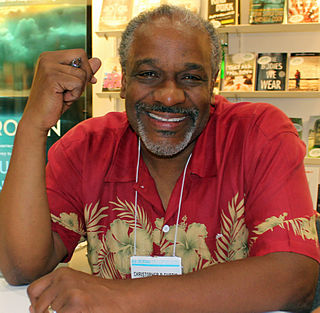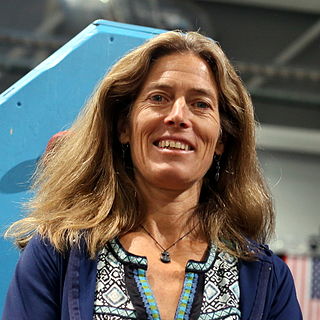A Quote by Bernie Siegel
The inexplicable happens all the time. It makes more sense to simply accept things we observe but cannot understand. It is really more scientific to keep an open mind. Until we can understand and explain the things we now label miracles, let us accept them and try to create more of them.
Related Quotes
Most of us do not understand nuclear fission, but we accept it. I don't understand television, but I accept it. I don't understand radio, but every week my voice goes out around the world, and I accept it. Why is it so easy to accept all these man-made miracles and so difficult to accept the miracles of the Bible?
Everyone wants to understand art. Why not try to understand the song of a bird? Why does one love the night, flowers, everything around one, without trying to understand them? But in the case of a painting people have to understand. If only they would realize above all that an artist works of necessity, that he himself is only a trifling bit of the world, and that no more importance should be attached to him than to plenty of other things which please us in the world, though we can't explain them. People who try to explain pictures are usually barking up the wrong tree.
What I mean is that if you really want to understand something, the best way is to try and explain it to someone else. That forces you to sort it out in your mind. And the more slow and dim-witted your pupil, the more you have to break things down into more and more simple ideas. And that's really the essence of programming. By the time you've sorted out a complicated idea into little steps that even a stupid machine can deal with, you've learned something about it yourself... The teacher usually learns more than the pupils. Isn't that true?
What is "this drive"? It's the tendency to not simply accept things as they are but to want to think about them, to understand them. To not be content to simply feel sad but to ask what sadness means. To not just get a bus pass but to think about the economic reasons getting a bus pass makes sense. I call this tendency the intellectual.
Those who read books cannot understand the teachings and, what's more, may even go astray. But those who try to observe the things going on in the mind, and always take that which is true in their own minds as their standard, never get muddled. They are able to comprehend suffering, and ultimately will understand Dharma. Then, they will understand the books they read.
It's not what people do that scares me. It's what they hide. It's the secrets that keep us from bonding and create distrust. If we were more willing to accept each other's depravity we'd be more united, we'd be more honest. If you hide two things from me, I'll assume you're hiding a million. And I'll keep you at a distance. I'm not afraid of the evil in you. It's in me too.
There is no reason for you to try to become like white people and there is no basis whatever for their impertinent assumption that *they* must accept *you*. The really terrible thing, old buddy, is that you must accept them. And I mean that very seriously. You must accept them and accept them with love.
If you just sit and observe, you will see how restless your mind is. If you try to calm it, it only makes it worse, but over time it does calm, and when it does, there's room to hear more subtle things - that's when your intuition starts to blossom and you start to see things more clearly and be in the present more. Your mind just slows down, and you see a tremendous expanse in the moment. You see so much more than you could see before. It's a discipline; you have to practice it.
Now, we don't really believe these things - intellectually we know better - but we believe them viscerally, and live by them, and they cause us to prioritize our own needs over the needs of others, even though what we really want, in our hearts, is to be less selfish, more aware of what's actually happening in the present moment, more open, and more loving.
That is what it is like with Pep. At first, you don't understand. But then you grow up, you work, and now we understand the things he wants much better. It's not like the first season when it took him more time to make us understand his ideas. Some players didn't understand immediately what he wanted.
Relaxation, acceptance, and keeping open mind are key. First of all, peak performance isn't possible if one is not relaxed, and if one is going to stay relaxed they must simply accept problems when they arise and decide to solve them. If I can't do a move I merely accept that I haven't discovered the right sequence, instead of trying the same sequence over and over or just quitting. I will try to do it 20 or 30 different ways, making subtle changes in body position and fot placement, until I find something that does work. That's what I mean by keeping an open mind.






































